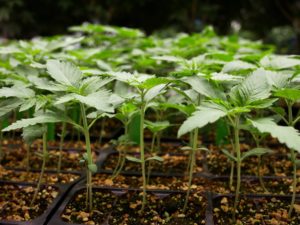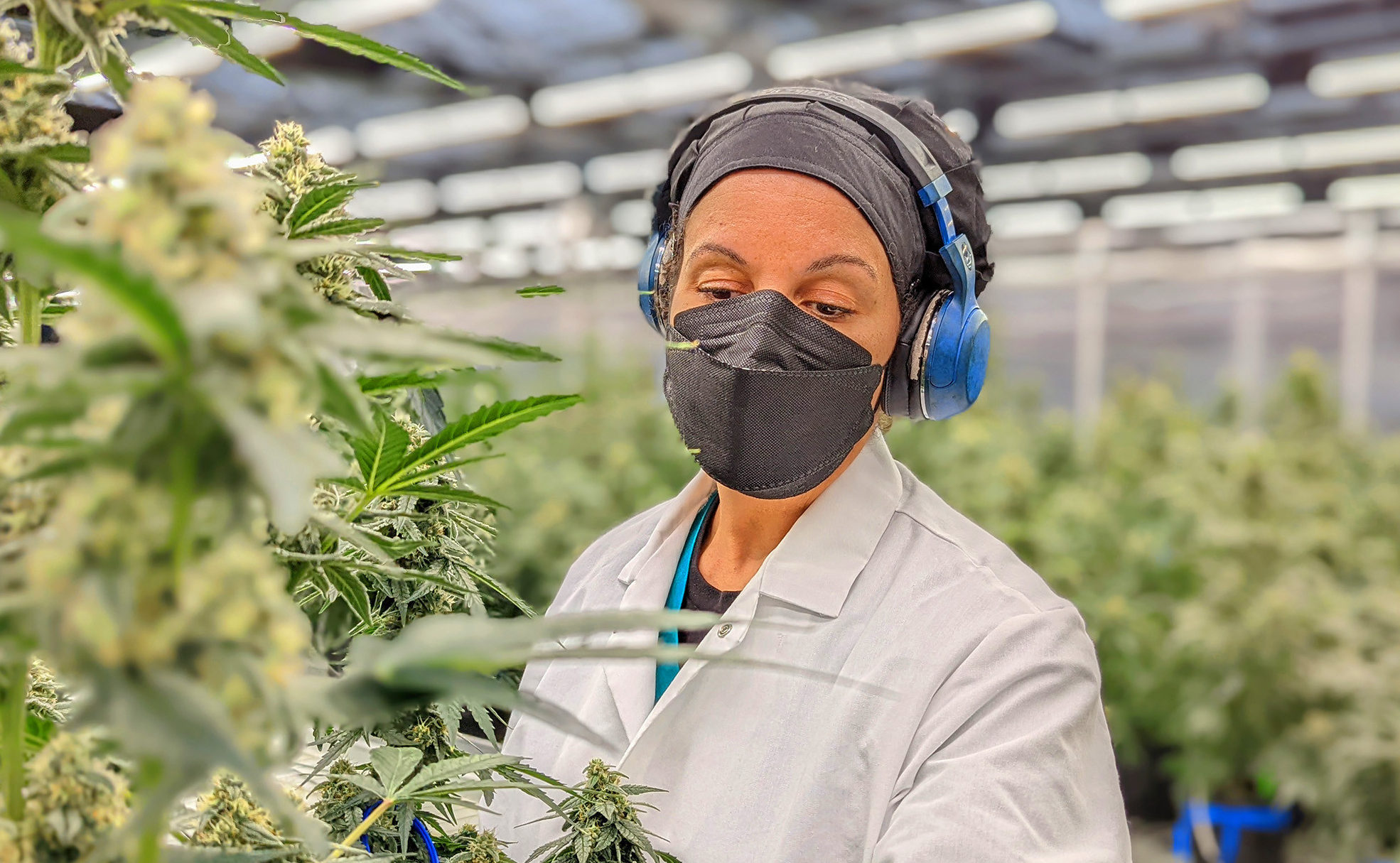Mighty oaks may from little acorns grow, but cannabis researcher Phylos is trying to take chance out of the equation. The company’s team of geneticists, breeders, plant scientists and agronomists want growers to worry less about Mother Nature and trust more in production-ready seed. At its Portland, OR crop science center, Phylos’ researchers employ controlled breeding and track genetic markers to produce hybrid seed for uniformity, input reduction and risk mitigation for large-scale cannabis and hemp production.
Traditionally, cultivators have used clonal varieties in commercial cannabis operations. However, some are switching from clone-grown cannabis to seed-grown for improved reliability and cost-savings. Seed cultivation eliminates the need to maintain mother stock and mother rooms, the task of pheno-hunting and the need for light deprivation equipment. According to Phylos, its short-season, day-neutral varieties allows for year-round planting, multiple harvest cycles and improved crop management. Its currently available true F1 hybrid seed varieties, with a 99%+ feminization rate, are bred to yield the uniformity and dependability.
The company says that its seeds, including: Lime Grow (170g yield per plant, 22.1% total THC, 1.2% total terpenes), Yuzu Euphoria (156g yield per plant, 22.5% total THC, 1.5% total terpenes) and Electric Daydream (128g yield per plant, 25.8% total THC, 1.1% total terpenes) maintain all the desirable traits of clonal varieties. That gives growers assured control over cannabinoid content, terpene composition, uniformity and yield consistency without the production overhead and labor requirements of maintaining clones.

A new generation of seedlings from genetically advanced seed breaks ground at Phylos in Portland, OR. PHOTO COURTESY PHYLOS
You reap what you sow
Additionally, the company notes, growing from seed reduces the risks of transferring pests and pathogens while providing a cleaner growing environment and healthier plants. Common diseases, such as powdery mildew, are particularly problematic as they often can not be initially seen with the naked eye. Growers looking to mitigate the risks of other diseases, like Hop Latent Viroid (HLVd), can benefit from utilizing seed, as research suggests that HLVd transmission is greatly reduced in seed-grown plants.
“We’re excited that our production-ready seed lines are getting into the hands of growers. When we release an F1 hybrid line, all of the data-driven decisions made during the breeding process are integrated into a seed line that has the characteristics growers need including high potency, hermaphrodite resistance, and consistent early maturation time,” explains Alisha Holloway, PhD., chief scientific officer at Phylos.
Advertisement
Phylos works with farms to conduct at-scale field trials to identify climate-specific traits for its seeds and refine optimum cultivation techniques. The company recently reported it findings on optimal plant density strategies for smaller grow operations . Since 2020, the company has performed trials at 35+ different locations in the U.S. and around the world. To learn more about the company, visit its website.
 A worker at Phylos’ seed-breeding facility in Portland, OR examines a cannabis plant as part of the company’s biotechnology program. PHOTO COURTESY PHYLOS
A worker at Phylos’ seed-breeding facility in Portland, OR examines a cannabis plant as part of the company’s biotechnology program. PHOTO COURTESY PHYLOS
















